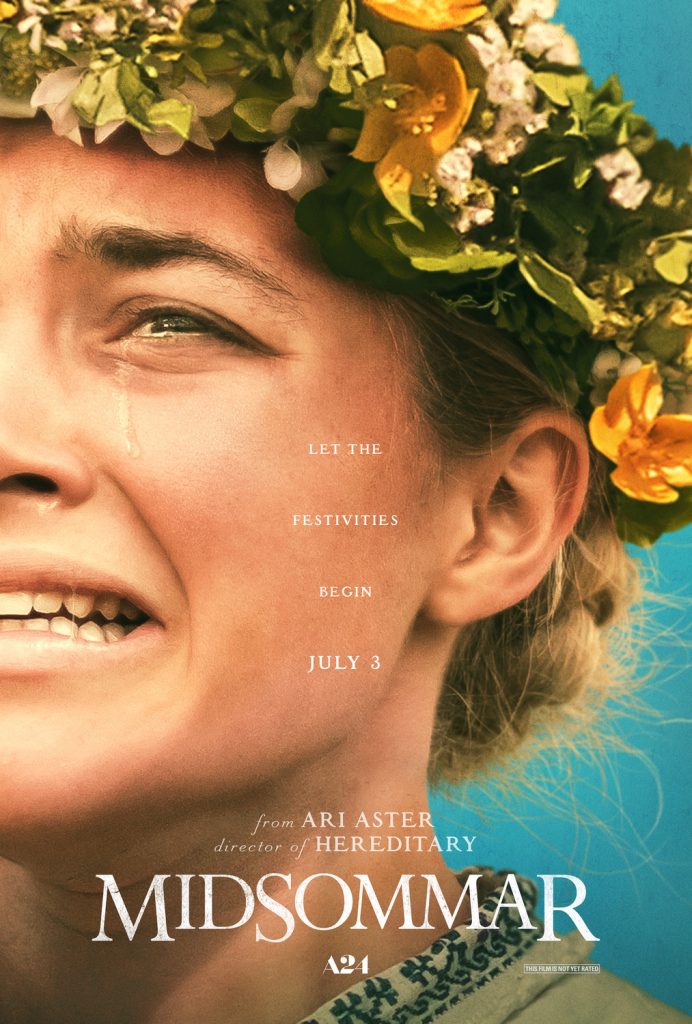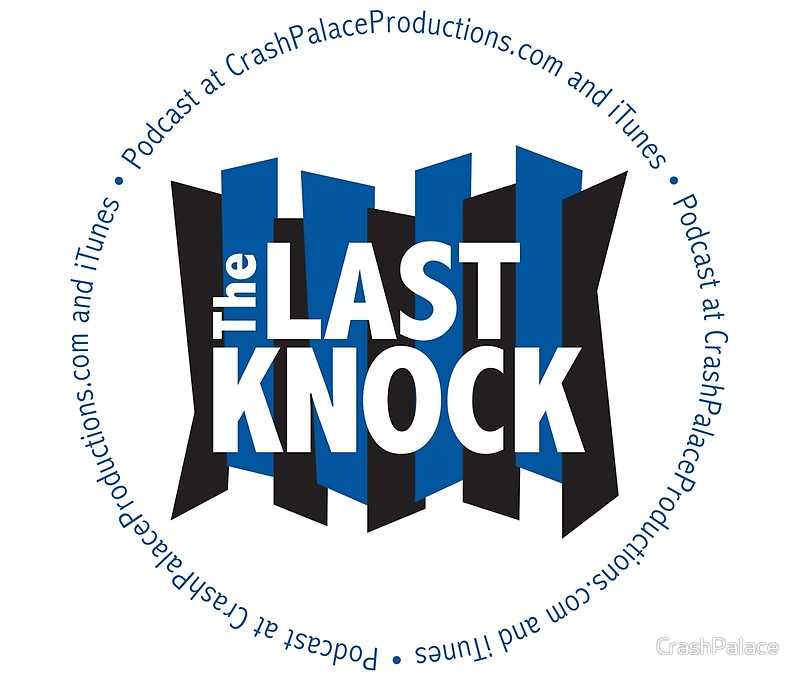 A Midsommar Night’s Mistake
A Midsommar Night’s Mistake
Full of Promise?
There’s so much pain in that poster, which cuts off half of Florence Pugh’s face to depict an expression of irreconcilable despair. It’s a potent image – one full of promise for horror fans. It also carries the implication of a dramatically raw film that will weigh heavily on viewers.
Ari Aster’s debut feature, Hereditary, attempted to fuse horror with domestic drama. While hailed by many, I found its setups artificial and its supernatural denouement inconsistent with all the wrought displays of grief, despair, and madness. It was a second-guess of a movie, albeit one that took its sweet time to reach a disappointing conclusion.
I wasn’t optimistic about Aster’s Midsommar, but I always like to reserve hope that filmmakers – especially those early in their careers – can improve as they go along.
For what it’s worth, Midsommar is a little better than his previous effort…but just a little.
Although it couldn’t find a balance among the shock tactics (severed heads!), production-design tics (dioramas!), and familial destruction (Toni Collette in meltdown mode!), Hereditary was at least interested in its characters.
Remaining Earthbound
In its favor, Midsommar is breathtaking at times, with cinematography that captures the fluidity of motion (the maypole dance being a prime example). The run time may be daunting, but seldom feels like the endless sit it could have been.
Yet something kept nagging me.
During the last act, I had an epiphany: I didn’t care about the characters. Not the mustache-twirling residents of the isolated Swedish commune, and not our grad-student protagonists. The film is so grandstanding in its look and aural feel, it would be easy to overlook the characters as anything more than barely-there villains and pawns.
The telegraphed storytelling doesn’t help matters. We know the people in the commune have some wacky (and gory) customs, but we also know said customs don’t stem from some skewed, Ugly American-style misperception. We’ve seen two versions of The Wicker Man, so we have a general idea of how things will go, no matter how much Aster modifies the formula. The characters aren’t developed enough for the stylistic flourishes to feel narratively essential, let alone transcendent. Despite its metaphysical and spiritual aspirations, Midsommar remains earthbound throughout.
An Undercooked Mix
I keep circling the caged bear in the room: characterization is treated as a pesky formality in the face of pushing aesthetic limits. For instance, Dani’s (Pugh) arc is ultimately just an undercooked mix of neuroses and faux empowerment (and a lot of crying). I don’t have a problem with the decision to kickstart the film with a dreary murder-suicide, but when such a meticulous tableau seems more for show than entering her character’s headspace, a certain distaste starts to settle in.
But there’s more: super-serious Josh (William Jackson Harper) has words with Dani’s dim-bulb boyfriend, Christian (Jack Reynor), over cribbing his thesis idea, which leads to a rather flaccid conflict. Again, this feels more like an obligatory moment than an actual jab at development (one can picture Aster standing off-camera saying, “this is how people act…right?”). Ditto Mark (Will Poulter), the stern-faced bro of the group, who is neither sleazy nor misunderstood enough to elicit feelings of sympathy or contempt. And Pelle (Vilhelm Blomgren), the ingratiating native who encourages the trip, drops conspiratorial bon motsto foster an unconvincing paranoia among his American peers.
The villagers’ sense of evasion becomes synchronous with Aster’s, but the expository interludes are clunky, as if the director is agitated by the confines of narrative storytelling. To that, I say: if you want to make something like Un Chien Andalou, just do it. As it stands, Midsommar’s cast is imprisoned in a myriad of ways: captives to the creepy commune, yes, but also pawns to the basic limitations of the aspect ratio. They’re set adrift within a landscape that’s beautiful and horrific, but hollow at its core.
Pugh gets the worst of it, though: not unlike Toni Collette in Hereditary, her emotional breakdowns are marginalized in the name of aesthetics, and it’s a disservice to both actresses’ efforts. Even though it was probably in production at the time, Midsommar feels like it wants to be last year’s Suspiria. That film was aesthetically rich and epic in length, but also interested in character and plotted densely enough to keep you invested; it haunted me long after viewing. Midsommar is featherweight by comparison, lingering in one’s consciousness like a slight fever instead of a mind-melting acid trip.
2.5 out of 5 stars
The Plot Sickens: Jonny Numb reports from the Pop, Rock ‘n Horror Convention!
Crash Analysis Support Team
Jonny Numb
 Jonny Numb (aka Jonathan Weidler), despite aspirations to the contrary, kills nothing but time on Twitter and Letterboxd @JonnyNumb. He also co-hosts THE LAST KNOCK podcast with Billy Crash.
Jonny Numb (aka Jonathan Weidler), despite aspirations to the contrary, kills nothing but time on Twitter and Letterboxd @JonnyNumb. He also co-hosts THE LAST KNOCK podcast with Billy Crash.
Get your Crash Palace and The Last Knock gear!
THE LAST KNOCK horror podcast is a Crash Palace Productions’ featured show. Besides this site, you can find THE LAST KNOCK on iTunes with new shows posted every other Sunday at 9 PM ET.
Crash Palace Productions website design and creation from Brian Yount Digital Enterprises with banner and THE LAST KNOCK art from Palko Designs.
(Midsommar movie poster from A24.)

